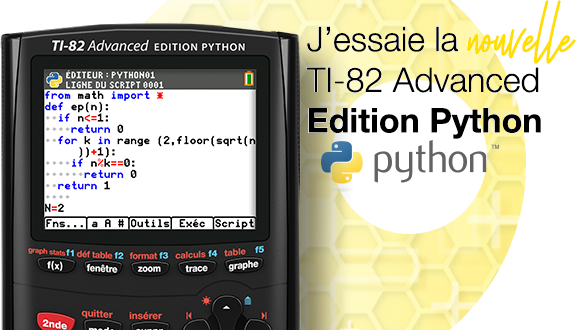Adriweb wrote:Un programme/app de 350K ça serait pas de taille moyenne, mais ça serait de très loin le plus gros sur CE (j'exclue le cas particulier de l'app python de TI parce que la majorité du poids c'est le firmware du coprocesseur - mais même avec ça il me semble que c'est pas aussi gros? Je sais plus)
En fait l'application lua de CBG serait un très bon exemple (lua prend 255K d'après CBG), mais en regardant https://www.cemetech.net/forum/viewtopic.php?p=299723 et le github de CBG je ne vois pas de code source public, et ce n'est pas clair que ca tourne sur la calculatrice physique, et pas juste sur l'emulateur.
Avant de me lancer sur la 83, je dois évaluer si l'investissement en travail a des chances raisonnables de succès. J'étais dans une situation analogue en 2018 avec les calculatrices Casio, mais c'était nettement plus favorable : j'avais sous la main le code source d'Eigenmaths (pour m'exercer sur de la taille moyenne avant de passer à plus gros) et une architecture cible dont la difficulté principale à gérer était l'endianness. D'ailleurs, ce serait intéressant de comprendre pourquoi personne ne semble avoir essayé de porter Eigenmaths sur la CE, alors que le portage sur Casio occupe un peu moins de 300K et que les solutions existantes de calcul symbolique sur 83/84+ sont loin d'être satisfaisantes à ce jour. Pourtant le potentiel d'utilisateurs est très important!
Pour la STL, on a déjà fait des essais à priori conclusifs avec uSTL.
Bonne nouvelle, est-il prévu de l'intégrer directement à la toolchain?

















